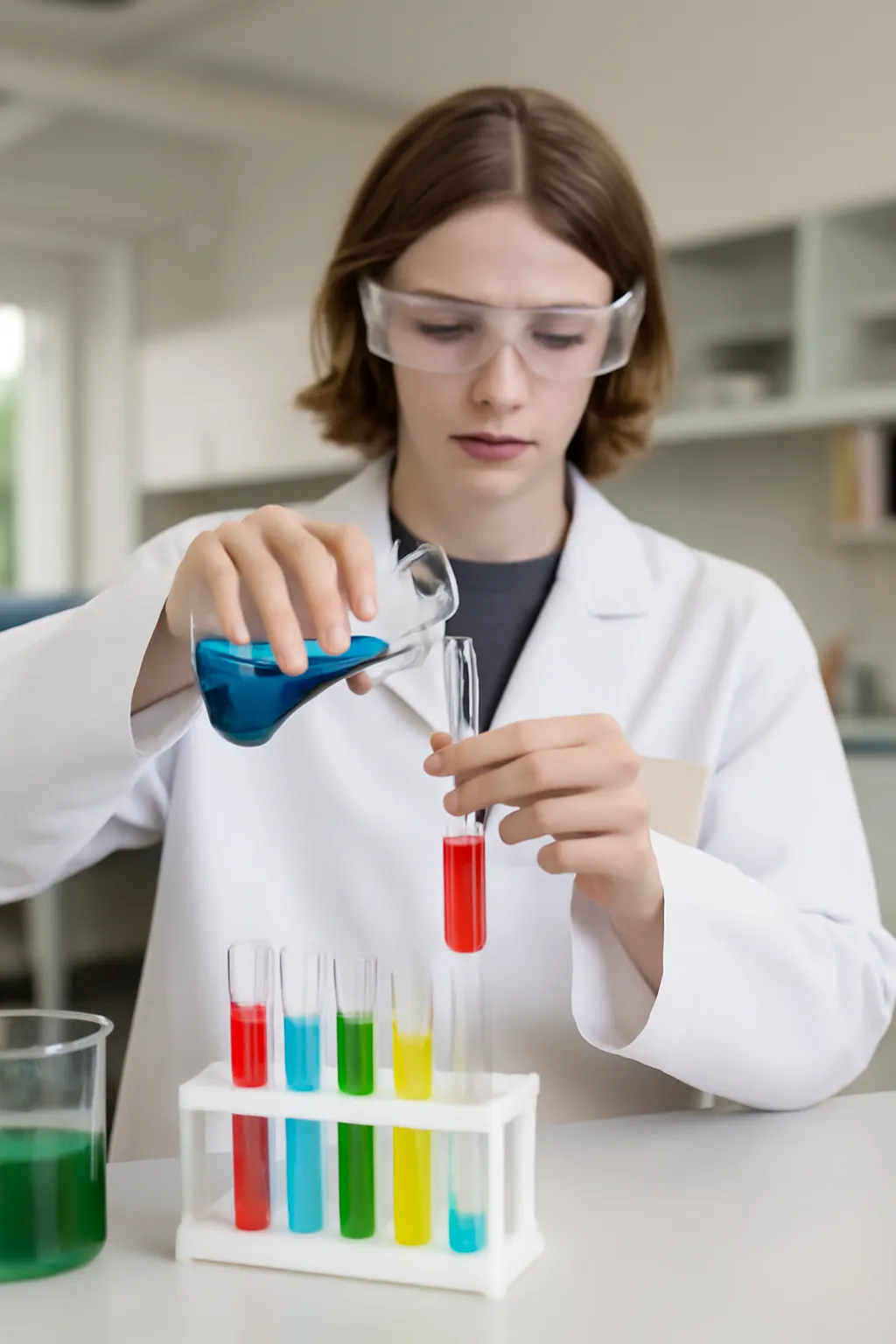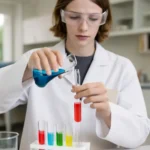High school students are increasingly exploring scientific principles through hands-on experimentation. These experiments allow students to deepen their understanding of concepts while developing critical thinking and problem-solving skills. Whether students are interested in chemistry, biology, or physics, there is a wealth of topics available that are engaging and educational. In this article, we will explore three main themes: chemical experiments, general science experiments, and science projects that are especially recommended for high school students.
High School Student Chemical Experiment Topic
Chemical experiments are one of the most popular and exciting ways for high school students to engage with the world of science. Chemistry experiments provide immediate, observable results, which helps students understand chemical reactions and concepts such as reaction rates, the conservation of mass, and stoichiometry.
Popular Chemical Experiment Topics:
-
Acid-Base Reactions Mixing different acids and bases to see how they interact is a classic chemistry experiment. One experiment often done is the reaction between vinegar (acetic acid) and baking soda (sodium bicarbonate), which produces carbon dioxide gas. This experiment can be extended by trying different acids and bases, comparing their strength and reaction rates.
-
Chromatography Chromatography is a technique that separates mixtures. High school students can use this method to separate pigments from black ink or other dyes. It’s a fantastic way to learn about the polarity of substances and how different components of a mixture travel through a medium at different rates.
-
Electrolysis of Water This experiment involves using electricity to break water (H2O) into its components, hydrogen, and oxygen. Students can observe the gas bubbles and understand the concepts of electrolysis and the breakdown of chemical bonds.
-
Endothermic and Exothermic Reactions Students can perform simple experiments to observe heat transfer during chemical reactions. For example, dissolving ammonium nitrate in water causes an endothermic reaction, while mixing sodium hydroxide and water releases heat, making it an exothermic reaction.
How to Carry Out a Chemical Experiment
When conducting chemical experiments, it’s crucial to follow safety protocols. High school students must wear protective gear such as safety goggles and lab coats to avoid accidents. For each experiment, students should:
-
Understand the purpose and theory behind the experiment.
-
Gather the necessary materials (e.g., chemicals, test tubes, beakers, etc.).
-
Follow the procedure step by step, ensuring precision and accuracy.
-
Record observations and analyze the results, making note of any errors or unusual occurrences.
Why Chemical Experiments Matter:
Engaging in chemical experiments allows students to connect theoretical knowledge with real-world applications. Understanding how substances interact provides a foundation for various fields like medicine, environmental science, and engineering.
👉 Learn more about high school chemical experiments! 👈
High School Student Experiment Topic
Beyond chemistry, science encompasses a broad range of subjects, and high school students can explore various experiments that delve into physics, biology, and even earth science. These topics not only encourage a deeper understanding of nature but also ignite curiosity and foster critical thinking skills.
Popular Experiment Topics for High School Students:
-
Magnetism and Electricity Investigating the relationship between magnetism and electricity is an engaging physics experiment. Students can create simple circuits, explore how magnets affect the flow of current, and even construct an electromagnet. This topic introduces basic concepts of electromagnetism and electric fields.
-
Plant Growth and Photosynthesis A classic biology experiment involves growing plants under different conditions and observing their growth. Students can explore how light, water, and temperature affect plant growth. This experiment can be extended to study photosynthesis by measuring oxygen production in plants exposed to different light sources.
-
Pendulum Motion By studying a swinging pendulum, students can explore concepts such as gravity, force, and motion. The experiment allows students to manipulate variables like string length and mass to see how they affect the period of the pendulum.
-
Water Filtration In this earth science experiment, students can create a model of a water filtration system using various materials (e.g., sand, charcoal, gravel). This project helps students understand the importance of clean water and the scientific principles behind filtration.
-
Balloon-Powered Cars This physics project uses the principles of air pressure and propulsion. Students can design and build cars powered by balloons, testing how the amount of air and the design of the car affect its speed and distance.
Why High School Students Should Experiment:
Science experiments offer high school students a dynamic way to learn. Instead of simply reading about scientific concepts, students actively participate in the discovery process. These experiments can spark a lifelong interest in science and might even inspire future career paths in STEM fields.
👉 Explore more high school science experiment ideas! 👈
Recommended for High School Student Experiment Topics
Certain science experiments are particularly recommended for high school students because they are both educational and safe. These topics give students the chance to explore core scientific principles while developing their laboratory skills.
Top Recommended Experiment Topics:
-
Viscosity and Density Students can explore how the viscosity and density of liquids affect their flow rates. By comparing liquids like honey, oil, and water, students can create a layered liquid display, learning about molecular structure and behavior.
-
Solar Oven A solar oven experiment teaches students about renewable energy. Using simple materials like cardboard, aluminum foil, and plastic wrap, students can build their own solar ovens and test them by cooking small items like s’mores.
-
Buoyancy and Archimedes’ Principle An experiment to demonstrate Archimedes’ principle involves dropping objects in water and measuring how much water they displace. This teaches students the concepts of density, buoyancy, and fluid displacement.
-
Genetics and Heredity Students can study genetic traits by breeding fruit flies or even plants to observe inheritance patterns. This experiment introduces basic principles of genetics and Mendelian inheritance.
-
Chemical Kinetics A great experiment for chemistry enthusiasts, students can investigate how temperature and concentration affect the rate of a chemical reaction. For example, they could explore how the reaction between hydrochloric acid and calcium carbonate changes at different temperatures.
The Value of Experimentation in High School:
Experimentation not only helps high school students solidify their understanding of scientific concepts but also enhances critical thinking, problem-solving, and analytical skills. By engaging with these hands-on projects, students build confidence in their ability to approach real-world problems methodically and creatively.
👉 Check out more recommended high school experiments! 👈
Conclusion
High school science experiments are an excellent way for students to explore the fascinating world of science. From chemical reactions to physics, biology, and earth science, experiments provide students with valuable insights into the world around them. These activities not only enhance knowledge but also cultivate skills in critical thinking and problem-solving, all while encouraging curiosity and creativity. Whether through chemistry, physics, or biology, hands-on experimentation remains one of the most effective ways to learn and grow scientifically. By choosing the right topics, students can enjoy the wonders of science while building a solid foundation for future academic pursuits and careers.
“Science is a way of thinking much more than it is a body of knowledge.” – Carl Sagan






